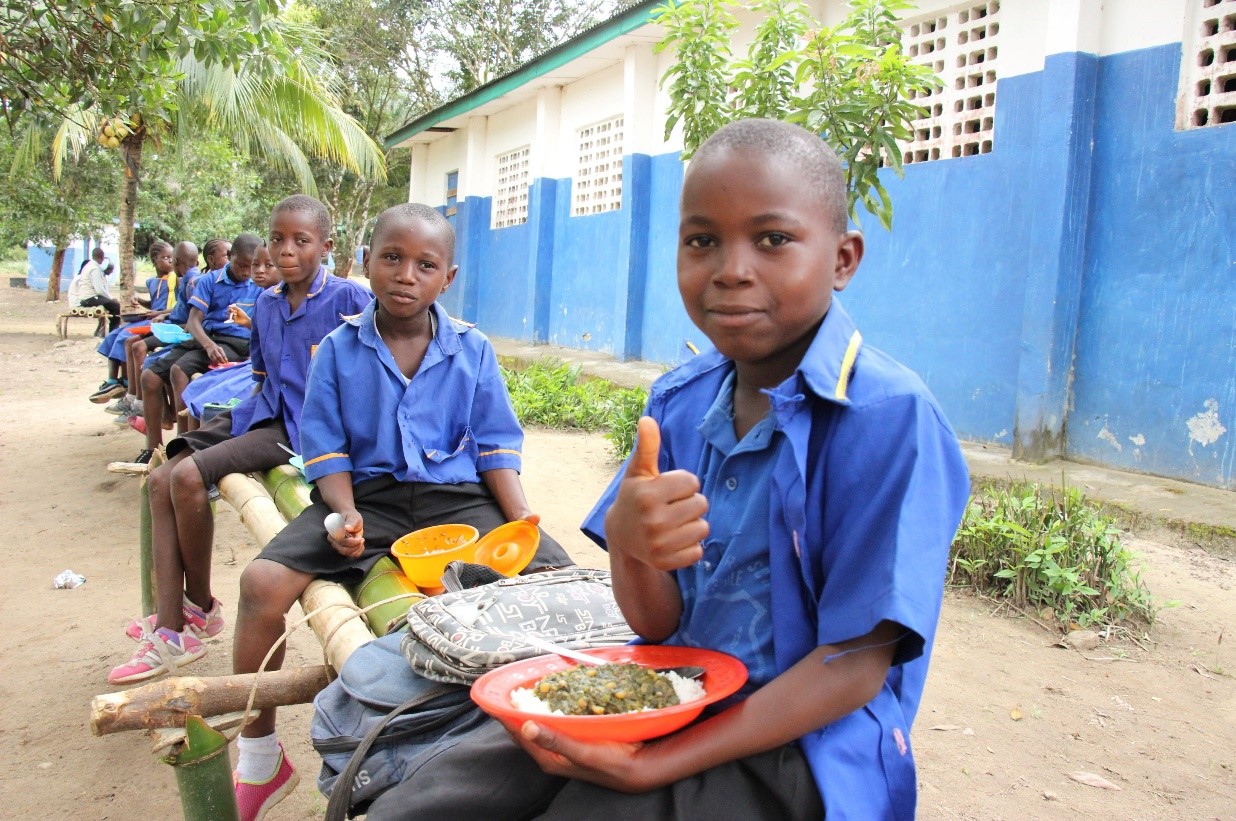The Federal Republic of Germany through its Federal Ministry for Economic Cooperation and Development (BMZ) has provided EUR 10 million to the United Nations World Food Programme (WFP) for the provision of nutritious meals to 25,300 primary school children in Karene district, northern Sierra Leone.
With this contribution, WFP will provide nutritious, safe, and diverse meals to pre and primary school children in 115 schools from 2024 to 2028, using locally produced foods to be sourced from 8,000 smallholder farmers. In so doing, the German-funded home-grown school meals programme will contribute to boosting local food production and consumption, creating demand for more diverse and nutritious food while stimulating the local economy and strengthening food systems.
Overall, in Sierra Leone, WFP is providing school meals to 238,000 pupils in 5 districts including 28,000 school children covered under the home-grown school feeding programme. This new contribution will increase the home-grown school feeding coverage to 53,000 pupils in early 2024, a 22 percent increase from the current coverage.
“This contribution shows the commitment of Germany to improving food security in Sierra Leone in line with the Government’s ‘Feed Salone’ initiative,” said Jens Kraus-Massé, Ambassador of the Federal Republic to Sierra Leone.
The project will transform the local food systems through support to local agricultural communities, particularly women, and creation of linkages to a predictable and structured markets, connecting the local farmers to schools.
This will shorten value chains substantially and provide an opportunity to transform lives.
“This funding is timely and will undoubtedly contribute to a successful home-grown school feeding implementation for the children of Karene and achieving the President’s human capital development vision,” said Conrad Sackey, Minister of Basic and Senior Secondary Education.
The Government of Sierra Leone has prioritized home-grown school feeding as a key component of its
National School Feeding Policy, with considerable premium on its multi-faceted nature including linking school feeding activities to local food production and procurement that has the potential to induce social and economic development of communities.
“WFP is particularly pleased with the Republic of Germany’s commitment to changing lives of vulnerable populations in Sierra Leone,” said Yvonne Forsen, WFP’s Representative and Country Director in Sierra Leone. “We are committed to continue working with partners to improve food security and nutrition, develop human capital, strengthen people’s livelihoods and revitalize local economy in the country”.
In line with the Government efforts to address the global climate crisis, part of the German-funding will be used to construct environmentally friendly kitchens and storerooms as well as fuel efficient stoves to reduce the amount of firewood used.

